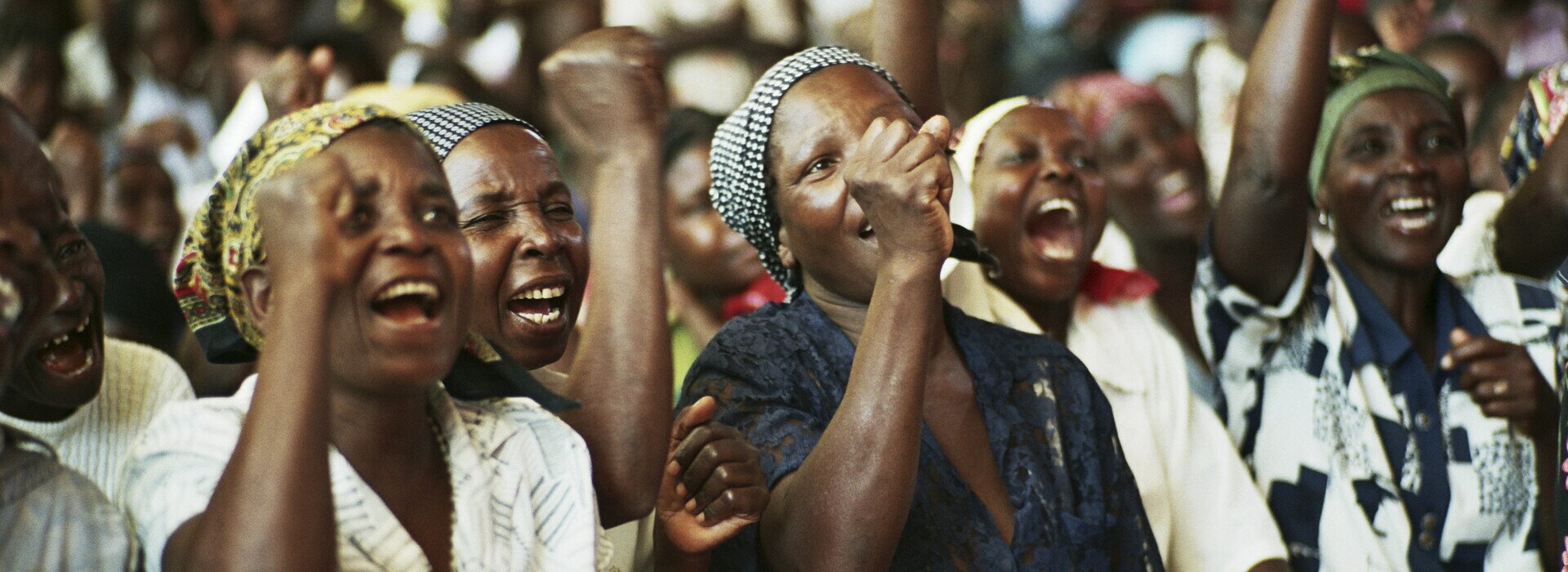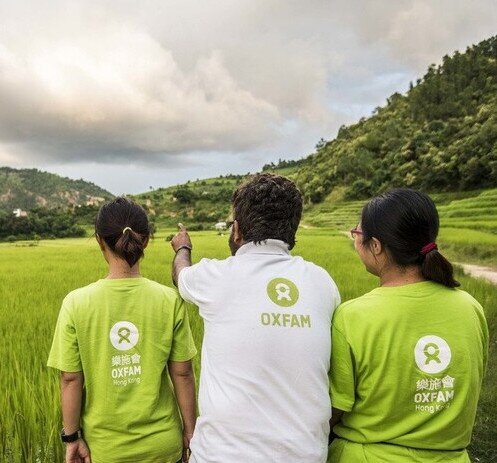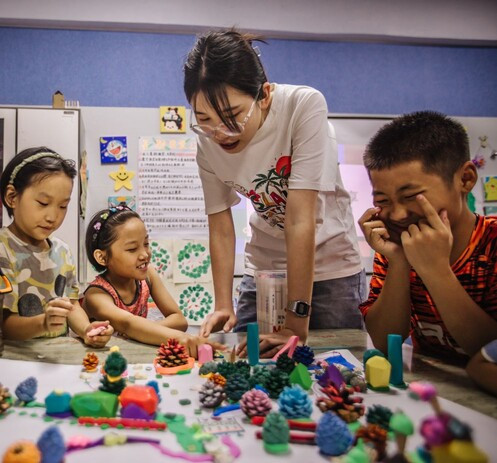We at Oxfam work with poor and marginalised people to exercise their civil rights, influence decisions that affect them and hold people in power accountable for their actions. We also work with these communities so they gain the ability, knowledge and voice to claim their rights to fairer and more equitable policies and laws.
impact Story: The Animators of Tanzania
In the villages sparsely located on the extensive barren plateaus of Tanzania that have no paved roads, villagers don’t have access to running water at home or at schools, and there’s a lack of teachers. But, they do have one thing: mobile phones.
During a meeting with the villagers in a village at northwest Tanzania, villagers spoke with Joseph, our programme officer, about issues affecting the community, and sharing their experience of using social media to fight for their rights and universal essential services. Joseph neither chimed in nor facilitated the meeting; he told us: ‘An active citizen should be able to articulate and address the problems by themselves.’ Being guided for six months, the villagers involved in the project have learnt how to effectively reach a consensus through discussion.
For people living in big cities, it’s not too hard for them to express their opinions. For smallholder farmers in Tanzania though, it’s something new and empowering. Since they’re too poor to afford data or a smartphone, Oxfam has provided them with smartphones, subsidized their data plans and provided training on how to use social media.
Prior to the programme, villagers were not aware of their rights, and had never thought that they could write to government officials. After joining the programme though, they understood how the constitution protects the rights of people and that they can monitor the provision of public services.
In fact, together with partner organisations, Oxfam designed an app for villagers to keep track of government policy papers. If they discover something is not implemented in alignment with what the government departments promised in their policy papers, they will call on officials to take action to bring about change.
Through the programme, the villagers have learnt that they have the power to bring about change in their own communities and can empower others like them to do the same. Villagers who participated in the project were trained to become ‘animators’ too.
Through social media, villagers are able to improve their lives. For instance, they let the president and government officials know of a damaged road outside the village. One week later, the Minister of Transport responded and sent a team of workers to repair the road. They also let the government know that they only had one nurse in the whole area. Four months later, the government sent two more nurses to work in the area. They even voiced their concerns about the lack of classrooms in a school to the Minister of Education. Villagers were told that the central government had allocated funding for them, however, most of the time a large portion of the money was pocketed by corrupt officials.
They then decided to report matters to ministers publicly and tag them on the social media. Officials were alerted to these issues, and immediately took action to fix the problems. The villagers successfully fought for the more classrooms in the school, and now continue to fight for other essential facilities, like increasing the number of teachers as promised by the government.
City dwellers might wonder whether officials would actually be able to respond to everyone who sends an appeal to the government now, since many people in the country own a smartphone. Joseph explained though, ‘The animator project is a pilot project. It’s rare to see farmers in remote and rural areas in Tanzania that are as organised as us. That’s why government officials are surprised and take our appeals so seriously.’
Not every villager was given a smartphone, so before those who own a smartphone post anything online about the community’s demands on the group’s behalf, they’d have thorough discussions about the issue among themselves and collect evidence to back their claims. They’re also very cautious about the words they use and avoid using language that’s too strong or divisive.
Through this programme, villagers have become active citizens, and have even come to develop a grassroots community concern group that believes in a bottom-up approach to governance in the process. They recognise each person’s civil rights, the right to be consulted and freedom of speech, and have been empowered to exercise their civil rights to bring about change that will last for a lifetime.




